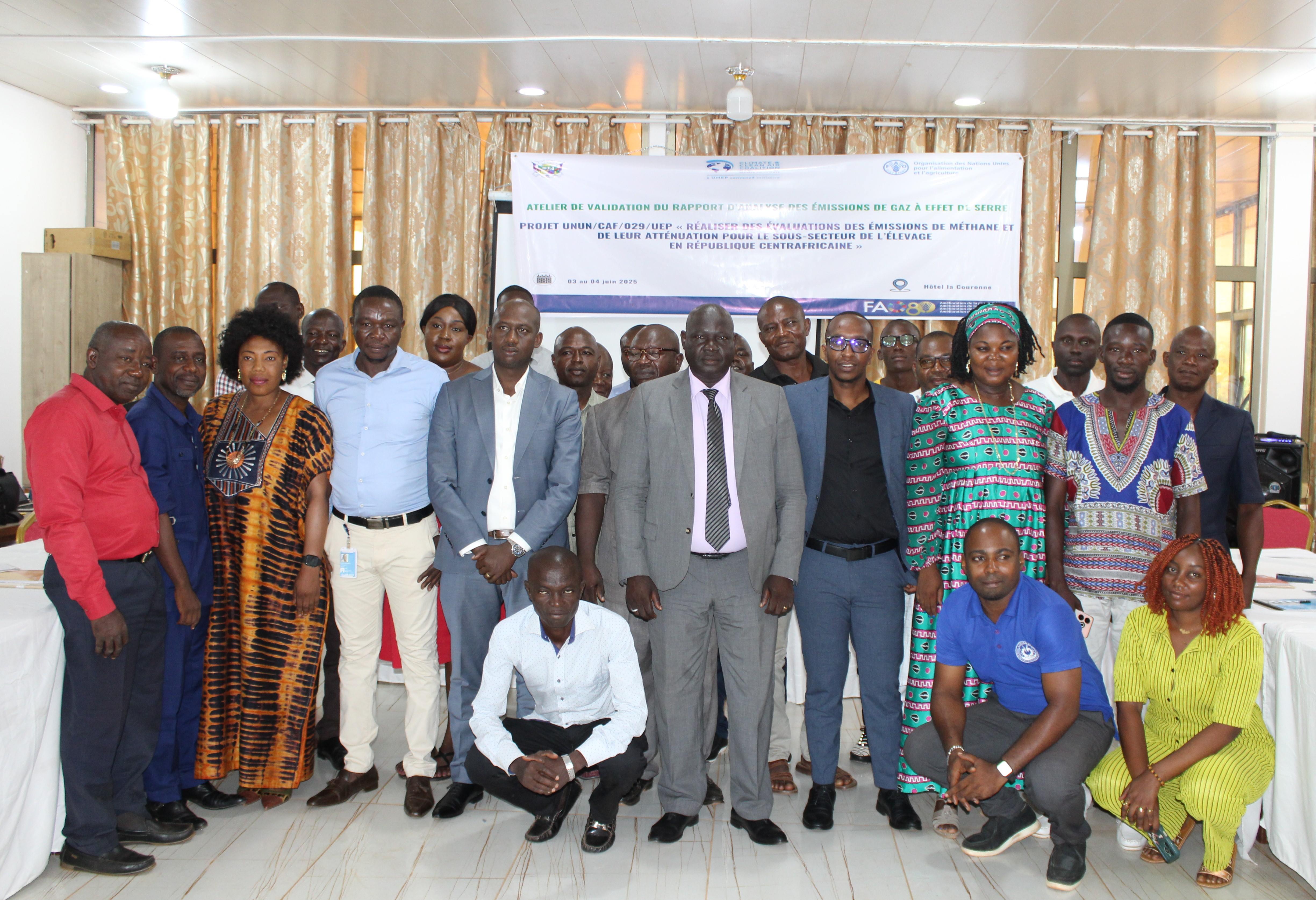Central African Republic validates livestock methane emissions report

©AO/ Ronald Kradjeyo
In the Central African Republic (CAR), livestock plays a vital role in food security, livelihoods, and the national economy, contributing approximately 15 percent to the country’s gross domestic product. However, the sector is increasingly vulnerable to climate change. In response, the country has made adaptation and mitigation commitments under its nationally determined contributions (NDC) to contribute to the Paris Agreement’s goals.
Since joining the Climate and Clean Air Coalition (CCAC) in 2013, the Central African Republic has prioritized reducing short-lived climate pollutants such as methane from agriculture and livestock. Recent efforts supported by FAO to improve methane emissions data and identify mitigation strategies represent a crucial step towards aligning the livestock sector with sustainable and climate-resilient development goals.
National workshop in Bangui
A key achievement in this effort was the national workshop held from 3 to 4 June 2025 in Bangui. Organized by the Food and Agriculture Organization of the United Nations (FAO) in collaboration with the Ministry of Environment and Sustainable Development, the event was part of the FAO-led project “Delivering methane emission and mitigation assessments for the livestock sector,” funded by the CCAC.
This workshop built on previous activities done under the project mainly on technical training on greenhouse gas (GHG) inventory in the livestock sector, as well as data collection and analysis activities. Around 40 participants from the government of the Central Africa Republic, civil society, private sector, academia, and development partners attended the event.
Validation of key findings
During the workshop, participants reviewed the Tier 2 emissions inventory conducted by FAO and validated the results. The findings identify methane from enteric fermentation and manure as the main contributors to GHG emissions in the Central African Republic’s livestock sector. Validating these results provides a scientifically sound basis for developing specific low-emission development pathways for the livestock sector. One of the workshop’s key outcomes was a call from national stakeholders to develop a roadmap to reduce methane emissions from the livestock sector. This roadmap would guide the implementation of practical, science-based mitigation strategies aligned with the country's development and climate goals.
The way forward
FAO reaffirmed its commitment to supporting the Central African Republic in strengthening climate action in the livestock sector. This includes providing technical guidance for the development of a mitigation roadmap, supporting capacity-building activities, and enhancing measurement, reporting and verification systems.
FAO will also collaborate with the Ministry of Environment and Sustainable Development to integrate livestock-related measures into the country’s next NDC 3.0. This engagement will ensure that the livestock sector is meaningfully represented in national climate strategies, further reinforcing the country’s commitment to low-emission and climate-resilient development.
News: Fostering methane mitigation in the Central African Republic
Event: FAO workshop in Central African Republic
Publication: Methane emissions in livestock and rice systems
